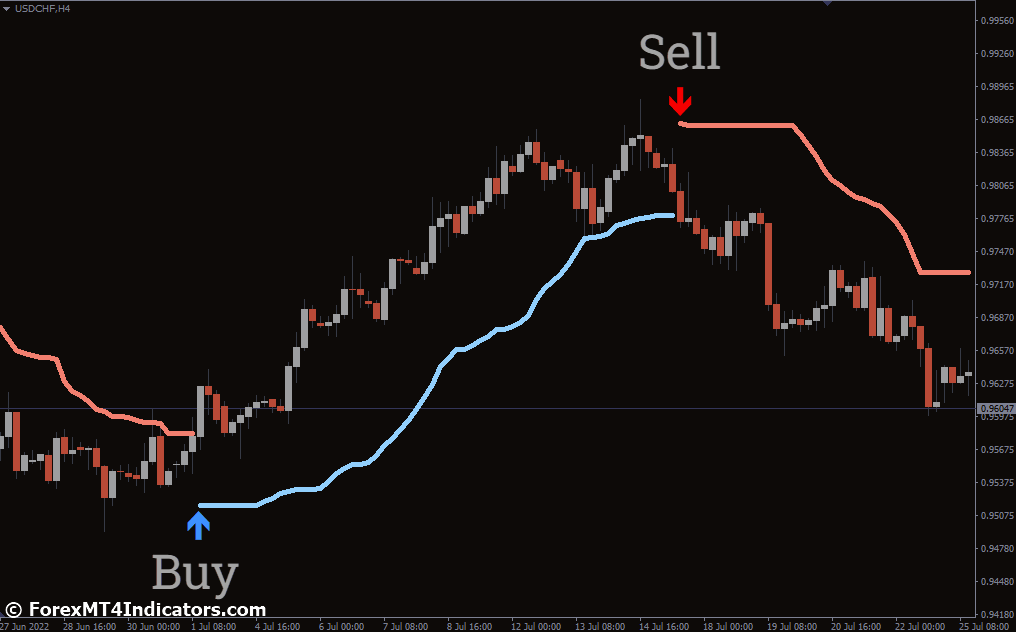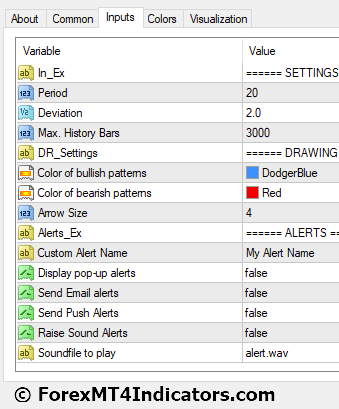- Home
- Features
- Business
- Active
- Sports
- Shop
Top Insights

At its core, the PZ Bollinger Trend is a custom indicator built upon the foundation of the widely recognized Bollinger Bands. Developed by John Bollinger, these bands depict price volatility through a moving average (MA) surrounded by two upper and lower bands. The PZ Bollinger Trend takes this concept a step further by incorporating unique elements to enhance trend identification.
Components of the PZ Bollinger Trend
Here’s a breakdown of the key elements that constitute the PZ Bollinger Trend:
- Moving Average Selection: Unlike standard Bollinger Bands, the PZ Bollinger Trend allows customization of the moving average type (e.g., Simple Moving Average, Exponential Moving Average) and its corresponding period. This flexibility empowers traders to tailor the indicator to their preferred timeframe and trading style.
- Custom Bollinger Bands: The indicator employs a modified calculation method for the upper and lower bands, deviating slightly from the standard Bollinger Band formula. This customization aims to refine the sensitivity of the bands to market movements, potentially leading to more precise trend signals.
Beyond the Basics
The beauty of the PZ Bollinger Trend lies in its customizability:
- Modifying Moving Average Parameters: As mentioned earlier, traders can experiment with different moving average types and timeframes to suit their trading preferences.
- Adjusting Bollinger Band Settings: The indicator allows fine-tuning the calculation method for the upper and lower bands. This enables traders to potentially refine the indicator’s sensitivity to market fluctuations.
- Additional Features: Some variations of the PZ Bollinger Trend may offer additional features like built-in alerts that can notify traders when potential buy or sell signals arise.
Crafting Winning Strategies with the PZ Bollinger Trend
While the PZ Bollinger Trend provides valuable trend direction cues, it’s recommended to employ it within a broader trading strategy. Here are some effective approaches:
- Trend Following with Confirmation Indicators: The PZ Bollinger Trend can be a powerful tool for identifying trends. However, incorporating confirmation indicators like the Moving Average Convergence Divergence (MACD) or the Relative Strength Index (RSI) can add an extra layer of validation to the signals.
- Combined with Price Action Analysis: Examining price action patterns like support and resistance levels alongside the PZ Bollinger Trend signals can offer a more comprehensive understanding of potential entry and exit points.
- Advanced Strategies for Experienced Traders: Seasoned traders can explore more intricate strategies by combining the PZ Bollinger Trend with other technical indicators and advanced order types.
Live Trading Considerations
Equipping yourself with theoretical knowledge is a vital first step. However, the true test lies in applying this understanding in the live trading arena. Here are some crucial considerations to keep in mind:
- Risk Management Techniques: The financial markets are inherently volatile, and effective risk management is paramount. Always implement stop-loss orders to automatically exit a trade if the price moves against you, limiting potential losses. Furthermore, practicing proper position sizing, and ensuring each trade represents a manageable portion of your capital, is essential.
- Money Management Strategies: Developing a sound money management strategy is vital for long-term trading success. This involves adhering to a predefined risk tolerance and avoiding the temptation to overexpose your capital in any single trade.
- Psychological Factors in Trading: Trading psychology plays a significant role in decision-making. Maintaining emotional control and avoiding impulsive actions triggered by fear or greed is crucial.
Comparison with Other Indicators
While the PZ Bollinger Trend offers a distinct approach to trend analysis, it’s beneficial to compare it with other popular indicators:
- Standard Bollinger Bands: As mentioned earlier, the PZ Bollinger Trend builds upon the foundation of Bollinger Bands. The core concept remains similar, but the PZ Bollinger Trend employs modifications to potentially enhance signal accuracy.
- Alternative Trend Following Indicators: Numerous indicators cater to trend identification, such as the Average Directional Index (ADX) or the Parabolic SAR. Understanding the strengths and limitations of each indicator and potentially combining them with the PZ Bollinger Trend can provide a more well-rounded perspective.
How to Trade with PZ Bollinger Trend Indicator
Buy Entry
- Price action: Look for a bullish candlestick pattern (e.g., hammer, engulfing bar) closing above the upper Bollinger Band.
- Confirmation: Consider incorporating additional indicators like MACD crossover above zero line or RSI moving above 50.
Sell Entry
- Price action: Look for a bearish candlestick pattern (e.g., shooting star, bearish engulfing) closing below the lower Bollinger Band.
- Confirmation: Consider incorporating additional indicators like MACD crossover below zero line or RSI moving below 50.
PZ Bollinger Trend Indicator Settings
Conclusion
The PZ Bollinger Trend MT4 Indicator serves as a valuable tool for traders seeking to navigate the complexities of the market. By understanding its components, interpreting the signals, and incorporating it within a broader trading strategy, traders can gain valuable insights into potential trends.
Recommended MT4 Broker
- Free $50 To Start Trading Instantly! (Withdrawable Profit)
- Deposit Bonus up to $5,000
- Unlimited Loyalty Program
- Award Winning Forex Broker
- Additional Exclusive Bonuses Throughout The Year
>> Claim Your $50 Bonus Here <<
(Free MT4 Indicators Download)
Click here below to download:
Recent Posts
Categories
Related Articles
Trend Continuation Factor and Hurst Exponent Forex Trading Strategy
The Trend Continuation Factor and Hurst Exponent Forex trading strategy is a...
ByglobalreutersJanuary 18, 2025Gold prices dip in face of strengthening US Dollar
Gold's price dropped late in the North American session, but it is...
ByglobalreutersJanuary 17, 2025Mexican Peso surges as traders eye next week’s inflation data
The Mexican Peso (MXN) stages a recovery after weakening to a new...
ByglobalreutersJanuary 17, 2025Forexlive Americas FX news wrap 17 Jan: US Supreme Court affirms decision to shut TikTok.
US stock indice close higher on the day and have positive returns...
ByglobalreutersJanuary 17, 2025









Leave a comment